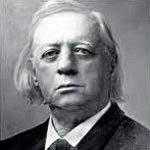Quotes about Self-Defending
Life would be a perpetual flea hunt if a men were obliged to run down all the innuendos, inveracities, insinuations and misrepresentations which are uttered against him.
There is something very unbecoming about a man of God who is always defending himself. Whenever one makes an observation, raises a question or offers a rebuke, if walls of defense immediately go up, it erodes respect.
The godly man sometimes may be so overclouded with calumnies and reproaches as not to be able to find a way to clear themselves before men, but must content and comfort themselves with the testimony of a good conscience and with God’s approval of their integrity.
A Puritan Golden Treasury, compiled by I.D.E. Thomas, by permission of Banner of Truth, Carlisle, PA. 2000, p. 284.
When we in turn are challenged, let us not defend ourselves and explain ourselves. Let us take it in silence, thanking the other; and then go to God about it and ask Him. If he was right, let us be humble enough to go and tell him, and praise God together.
The Calvary Road, Christian Literature Crusade, 1950, p. 82. P.O. Box 1449, Fort Washington, PA 19034-8449. Used by Permission.
A sin is two sins when it is defended.
A Puritan Golden Treasury, compiled by I.D.E. Thomas, by permission of Banner of Truth, Carlisle, PA. 2000, p. 101.
Abstain from fighting your own battles, and in nine cases out of ten your accusers will gain nothing by their malevolence but chagrin for themselves and contempt for others.
Standing as we do in a position which makes us choice targets for the devil and his allies, our best course is to defend our innocence by our silence and leave our reputation with God. Yet there are exceptions to this general rule. When distinct, definite, public charges are made against a man he is bound to answer them, and answer them in the clearest and most open manner. To decline all investigation is in such a case practically to plead guilty, and whatever may be the mode of putting it, the general public ordinarily regard a refusal to reply as a proof of guilt. Under mere worry and annoyance it is by far the best to be altogether passive, but when the matter assumes more serious proportions, and our accuser defies us to a defense, we are bound to meet his charges with honest statements of fact.
The best way to deal with slander is to pray about it: God will either remove it, or remove the sting from it. Our own attempts at clearing ourselves are usually failures; we are like the boy who wished to remove the blot from his copy, and by his bungling made it ten times worse.
Why do any of us get upset or tense when confronted? Why do any of us activate our inner lawyer and rise to our own defense? Why do any of us turn the tables and remind the other person that we are not the only sinner in the room? Why do we argue about the facts or dispute the other person’s interpretation. We do all of these things because we are convinced in our hearts that we are more righteous that how than we are being portrayed in the moment of confrontation. Proud people don’t welcome loving warning, rebuke, confrontation, question, criticism, or accountability, because they don’t feel the need for it. And when they do fail, they are very good at erecting plausible reasons for what they said or did, given the stress of the situation or relationship in which it was done.
Self-Glory by Paul David Tripp taken from Dangerous Calling by Paul David Tripp, copyright 2012, Crossway Books, a division of Good News Publishers, Wheaton Illinois 60187, www.crosswaybooks.org, p. 178.
There is no one we run to defend more than we do ourselves.
Joints and Ligaments by Paul David Tripp taken from Dangerous Calling by Paul David Tripp, copyright 2012, Crossway Books, a division of Good News Publishers, Wheaton Illinois 60187, www.crosswaybooks.org, p. 77.
The answer is simple: for myself, I do not believe that it is appropriate that I spend my time defending my name. My name is nothing – who really cares about it? And I am not called to waste precious hours and energy in fighting off every person with a laptop who wants to have a pop at me. As a Christian, I am not meant to engage in self-justification any more than self-promotion; I am called rather to defend the name of Christ; and, to be honest, I have yet to see a criticism of me, true or untrue, to which I could justifiably respond on the grounds that it was Christ’s honour, and not simply my ego, which was being damaged. I am called to spend my time in being a husband, a father, a minister in my denomination, a member of my church, a good friend to those around me, and a conscientious employee. These things, these people, these locations and contexts, are to shape my priorities and my allocation of time. Hitting back in anger at those who, justly or unjustly, do not like me and for some reason think the world needs to know what they think of me is no part of my God-given vocation. God will look after my reputation if needs be; He has given me other work to do.
God has not commanded you to be admired or esteemed. He has never bidden you defend your character. He has not set you at work to contradict falsehood (about yourself), which Satan’s or God’s servants may start to peddle, or to track down every rumor that threatens your reputation. If you do these things, you will do nothing else; you will be at work for yourself and not for the Lord.
Criticism should be viewed as a tool for growth and change. Several temptations arise when we experience criticism. 1. We fear the loss of respect; 2. We look for reasons to challenge the data; 3. We search for flaws in the process; 4. We point out weakness in the other person; 5. We demand credit for our strengths; 6. We play the martyr, reeling under the unjust complaints of others. Yet, when we run away from the slightest hint of criticism, we forfeit the very means by which our Lord wants to make us more effective and godly.
When God’s name and character are belittled, we ought to be indignant. But when others attack our lives and ministries, God remains the issue. He will bring everything to light at the proper time for the vindication of His glory and power (Matt. 10:26; 1 Cor. 4:5)… Taking personal offense at the attacks of others makes our reputation the issue and stores up personal “baggage” in our hearts, leading to bitter grudges.
Defending our personal reputations by going on the attack directs attention toward us instead of toward the authority and glory of God. Criticism should be challenged, not when our reputations are maligned, but when God is.








